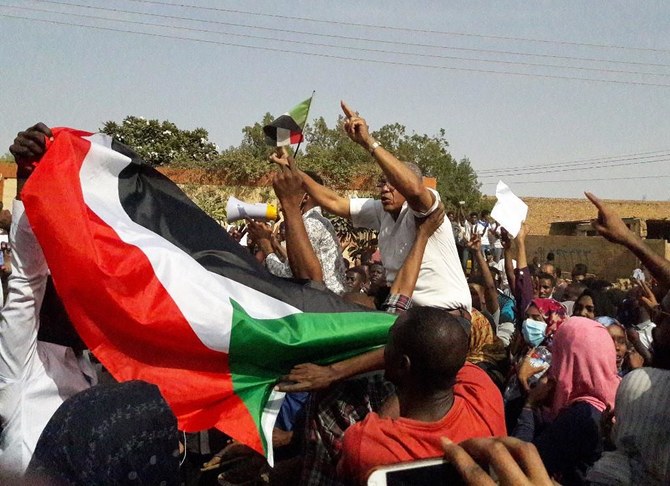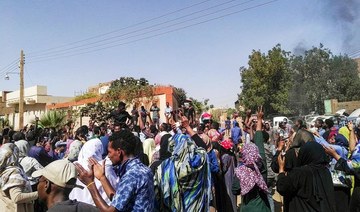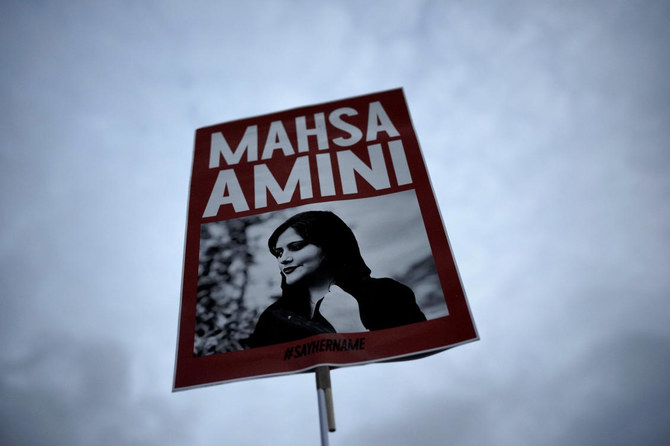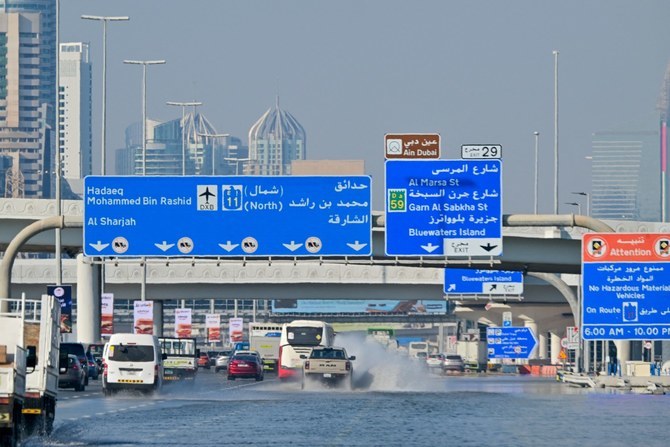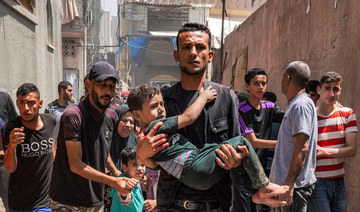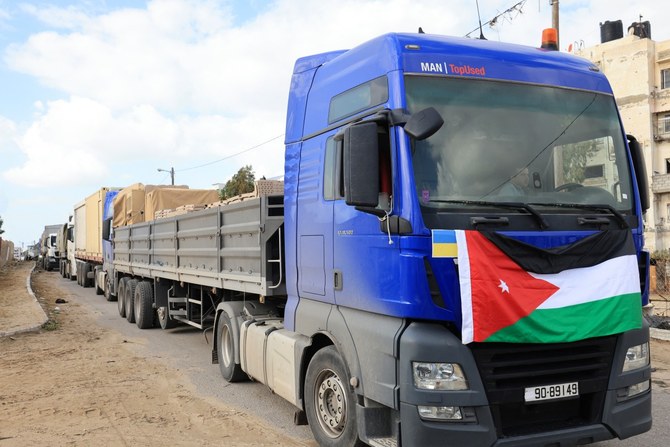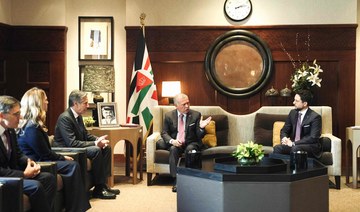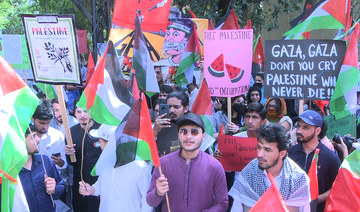KHARTOUM: Thousands of Sudanese demonstrators marched in Khartoum Saturday, many reaching the army headquarters for the first time since deadly protests against President Omar Al-Bashir erupted last year, witnesses said.
Chanting "One Army, One People," the protesters rallied in the capital's streets following a call by organisers to march on the compound, which also includes Bashir's residence.
The crowds chanted the movement's catchcry "peace, justice, freedom" as they marched towards the complex where the defence ministry is also based, onlookers said.
"They were also calling on Bashir to step down," a witness said.
Taking a break from shouting anti-government slogans, protester Ghada Mohamed said the rally signalled a "bright future" for Sudan.
Protester Amir Omer said the demonstrators had managed to send a message to the military.
"We still haven't achieved our goal, but we have delivered our message to the army and that is: come join us," he told AFP.
Protest organisers led by the Sudanese Professionals Association said earlier this week that demonstrators would march Saturday to demand the army either "take the side of the people or the dictator's".
Soon after reaching the compound, organisers called on the protesters to hold in place outside its fortified walls.
"At this historic moment, we ask you to not leave the army headquarters and hold a sit-in in the nearby streets," the organisers said in a statement.
"We appreciate that the army did not touch the protesters and we hope that it will take the side of the people."
Since the protests erupted, security agents and riot police have cracked down on demonstrators but the army has not intervened.
In a separate demonstration Saturday, protesters reached the army office in the town of Madani southeast of the capital, witnesses told AFP by telephone.
Protests have rocked the east African country since December, with angry crowds accusing Bashir's government of mismanaging the economy that has led to soaring food prices and regular shortages of fuel and foreign currency.
Demonstrations first erupted on December 19 after a government decision to triple the price of bread.
But they quickly escalated into nationwide rallies against Bashir's rule, with protestors calling on him to step down.
On February 22, the veteran leader imposed a nationwide state of emergency to quell the protests after an initial crackdown failed to rein in protesters.
Since emergency rule came into effect, the demonstrations have been largely confined to the capital and its twin city of Omdurman, but organisers had called for widespread rallies and a march on the army headquarters on Saturday.
April 6 was chosen for the nationwide rallies as it was the day of a 1985 uprising that toppled the then regime of president Jaafar Nimeiri.
Before the protests began, security forces deployed in large numbers in key Khartoum squares and in Omdurman, across the Nile.
"There's a heavy security deployment where the protesters were to gather for the march, but they still came out and are chanting anti-government slogans," a witness told AFP without revealing his name for security reasons.
Security agents were preventing passers-by from reaching downtown areas and ordered shops and markets in the area closed, witnesses said.
"Those walking in groups were immediately detained or asked to return to their homes by security forces," another onlooker said.
Activists in recent days have been circulating leaflets urging residents to participate in Saturday's march, residents said.
The protest movement was initially led by the Sudanese Professionals Association, but later several political parties including the main opposition National Umma Party threw their support behind it.
Analysts say the movement has emerged as the biggest challenge yet to Bashir's three-decade rule.
But the veteran leader has remained defiant, introducing tough measures that have seen protesters, opposition leaders, activists and journalists arrested.
Officials say 31 people have been killed in protest related violence so far, but Human Rights Watch has put the death toll at 51 including children and medics.



